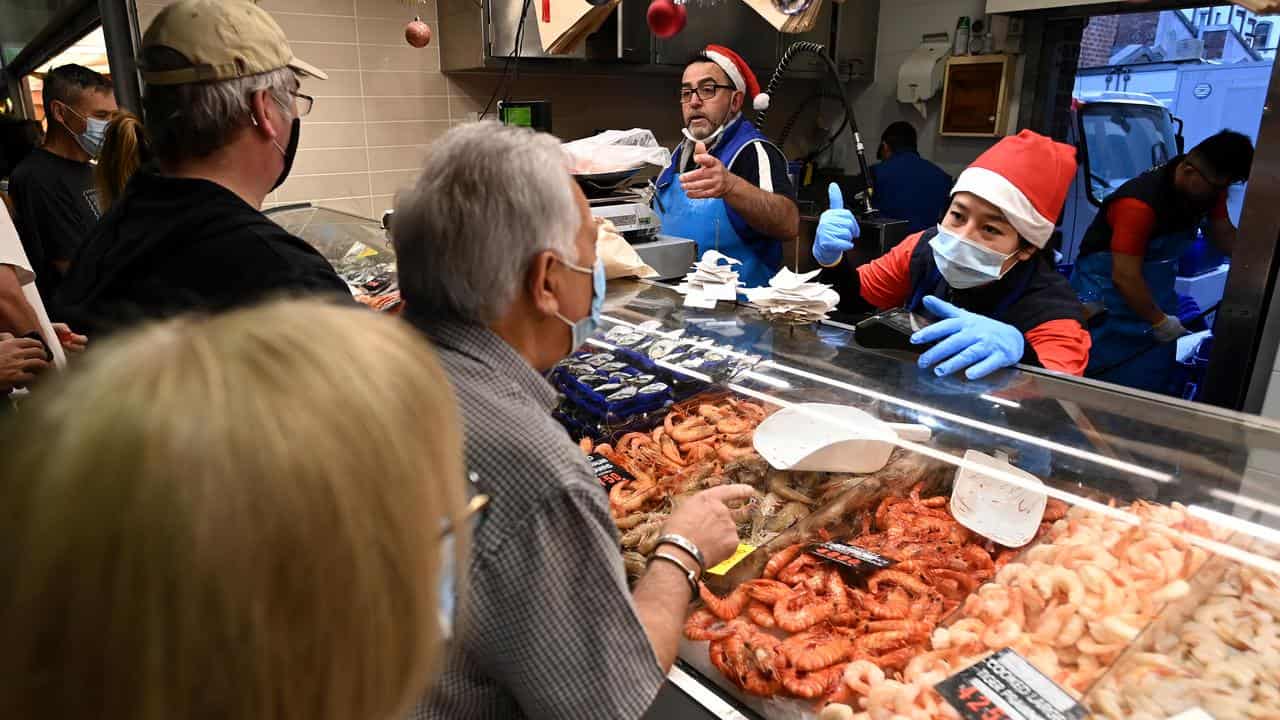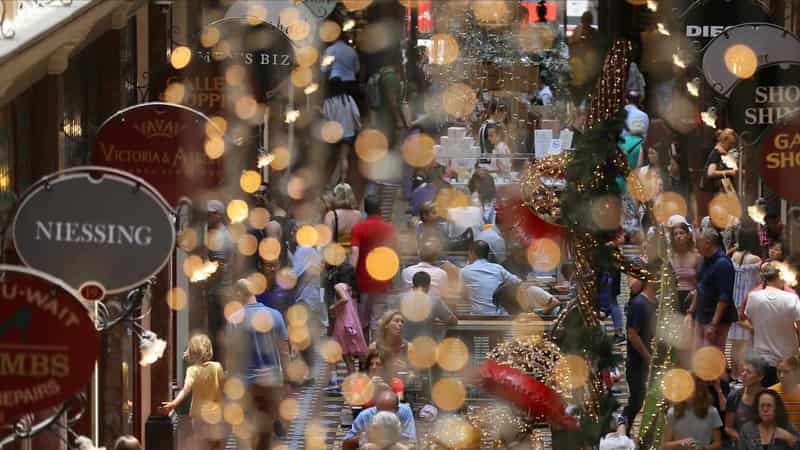
Australian retailers will benefit from a rush of last-minute Christmas shopping as a predicted $9 billion is spent in the final week of sales.
But the late dash to the shops won't spare many outlets from a poor end-of-year performance as household budgets are crushed by high living costs.
The Australian Retailers Association said on Monday the multi-billion-dollar shopping splurge would take the total outlay in the November to Christmas trading period to $67.4 billion, up one per cent on the same period last year.
Around $27 billion is forecast to be forked out on food, accounting for most of the spend, a lift of 3.2 per cent on last year.

Department-store spending was set to rise three per cent, followed by a 1.6 per cent lift in spending on recreational goods, books and cosmetics.
The outlay on clothing was expected to tick up 0.6 per cent.
Meanwhile, spending on household goods was forecast to fall three per cent, while spending on hospitality was tipped to decline 1.5 per cent.
NSW consumers were forecast to spend $21.3 billion, while Victorians were set to spend $17.3 billion, according to the association.
The peak body's chief executive, Paul Zahra, said retailers had built momentum during Black Friday sales but conditions in the sector were tough.
“The slight increase in spending this year is being inflated by unavoidable supply chain price increases, particularly in food, and an overall increase in Australia’s population,” he said.
“If you exclude these factors, overall Christmas spending is in decline."
Persistently high living costs and a series of interest rate hikes pushing up monthly repayments for mortgage holders has dampened the festive spirit of roughly half of those surveyed by comparison site Finder.
Fifty-one per cent of the 1,062 respondents surveyed said they would either buy less to save money, or were cancelling Christmas altogether.
Younger generations were more likely to be pinching pennies, consistent with rising housing costs consistent with demographics that are renting or paying off a home loan.
Two in three Gen Zs and Gen Ys were buying less or ditching Christmas this year, compared to 47 per cent of Gen Xs and 31 per cent of baby boomers.
Finder personal finance expert Sarah Megginson said households should keep spending within their means rather than "getting into debt to keep up appearances".
“There are ways to celebrate the festive season without exchanging expensive presents," she said, such as making homemade gifts or splitting costs with others," she said.









